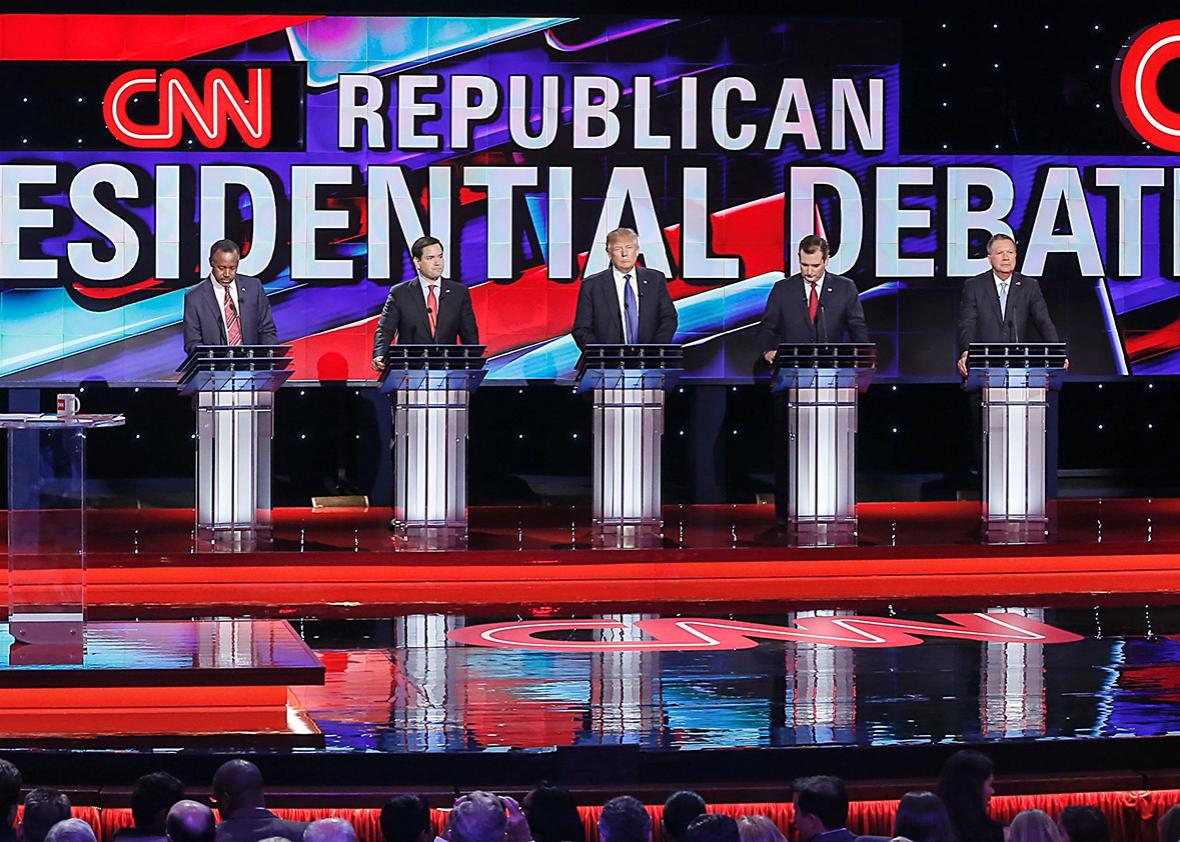In case you hadn’t picked up the latest goalpost shift from the losing Sen. Marco Rubio campaign, we have an update: Winning a majority of delegates doesn’t seem to be something it expects to do, especially after another ho-hum night on Super Tuesday. The goal now is to deny Trump from reaching an outright majority of delegates and then oust him after the first ballot at the convention. This isn’t just the backup plan anymore; it is the plan. This means that it might be better for all of the non–Donald Trump candidates to stay in the race and pick off potential wins from Trump here and there.
Interesting theory. And definitely one born out of necessity, since Super Tuesday’s results made clear that the field won’t consolidate any time soon. But does it work?
“Rubio and his advisers have described an ugly, drawn-out path to the Republican nomination,” Politico reported on Tuesday. “Their strategy relies on picking off enough delegates to hold Trump below the 1,237 delegates needed to secure the nomination on the first ballot at the convention.” Politico also reported that Terry Sullivan, a top Rubio adviser, told donors, lobbyists, and other members of the dying Republican establishment in a Tuesday morning meeting “that it would be mathematically impossible for Donald Trump to get to 1,237 delegate votes by the end of April, according to multiple attendees.” (Sullivan must be aware that there are contests in May and June, including a small state called “California,” but maybe the dopey donors aren’t.)
If blocking Trump from winning a majority of bound delegates is the goal, then it could make sense in the short term to keep everyone in the race, since any delegates that Trump doesn’t win count as a victory. Rubio would not have defeated Trump in Texas, so it was useful for Cruz to stay in and take a majority of those delegates for himself. Rubio won’t be able to defeat Trump in Ohio, so Kasich can handle that task. A split field makes it impossible for one candidate to gain a majority over Trump. But it helps to stop Trump himself from getting a majority.
The “everyone stay!” strategy appeared to have some adherents Tuesday night. As Time’s Zeke Miller points out, if the goal is to stop Trump from hitting 1,237, a split field can be of use through March 15.
But then there are the problems.
Even if some contests allocate delegates proportionately starting March 15, most of them don’t. They simply do not. So Trump would win most winner-take-all states with pluralities in a field split between Rubio, Cruz, and Kasich. Even if the field did winnow to a one-on-one, Trump would probably still win enough of those contests to secure a majority. This is what it means to be a dominating front-runner: You’ve closed off all paths for your challengers.
Even if either the all-in or one-on-one strategies for denying Trump a majority of delegates somehow worked, few seem to have considered what happens next. Suppose Donald Trump gets close to a majority of delegates—and well beyond Rubio—but some sort of establishment convention coup goes down and magically installs Rubio as the nominee. Do the plotters believe that this will go over well with Trump supporters? Trump wouldn’t be the one destroying the Republican Party in that case.
Read more Slate coverage of the GOP primary.
